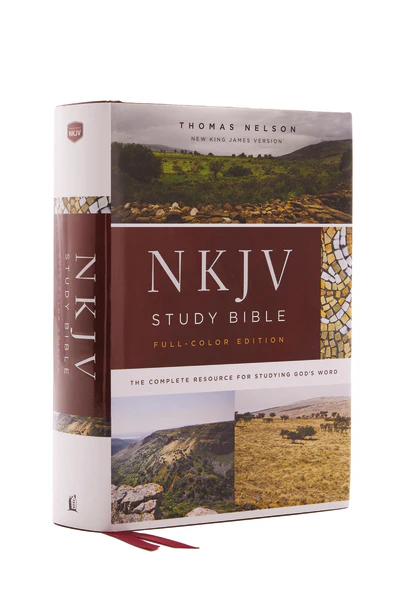Ezra 3-4
New King James Version
Worship Restored at Jerusalem
3 And when the (A)seventh month had come, and the children of Israel were in the cities, the people gathered together as one man to Jerusalem. 2 Then [a]Jeshua the son of (B)Jozadak[b] and his brethren the priests, (C)and Zerubbabel the son of (D)Shealtiel and his brethren, arose and built the altar of the God of Israel, to offer burnt offerings on it, as it is (E)written in the Law of Moses the man of God. 3 Though fear had come upon them because of the people of those countries, they set the altar on its [c]bases; and they offered (F)burnt offerings on it to the Lord, both the morning and evening burnt offerings. 4 (G)They also kept the Feast of Tabernacles, (H)as it is written, and (I)offered the daily burnt offerings in the number required by ordinance for each day. 5 Afterwards they offered the (J)regular burnt offering, and those for New Moons and for all the appointed feasts of the Lord that were consecrated, and those of everyone who willingly offered a freewill offering to the Lord. 6 From the first day of the seventh month they began to offer burnt offerings to the Lord, although the foundation of the temple of the Lord had not been laid. 7 They also gave money to the masons and the carpenters, and (K)food, drink, and oil to the people of Sidon and Tyre to bring cedar logs from Lebanon to the sea, to (L)Joppa, (M)according to the permission which they had from Cyrus king of Persia.
Restoration of the Temple Begins
8 Now in the second month of the second year of their coming to the house of God at Jerusalem, (N)Zerubbabel the son of Shealtiel, Jeshua the son of [d]Jozadak, and the rest of their brethren the priests and the Levites, and all those who had come out of the captivity to Jerusalem, began work (O)and appointed the Levites from twenty years old and above to oversee the work of the house of the Lord. 9 Then Jeshua with his sons and brothers, Kadmiel with his sons, and the sons of [e]Judah, arose as one to oversee those working on the house of God: the sons of Henadad with their sons and their brethren the Levites.
10 When the builders laid the foundation of the temple of the Lord, (P)the[f] priests stood in their apparel with trumpets, and the Levites, the sons of Asaph, with cymbals, to praise the Lord, according to the (Q)ordinance[g] of David king of Israel. 11 (R)And they sang responsively, praising and giving thanks to the Lord:
Then all the people shouted with a great shout, when they praised the Lord, because the foundation of the house of the Lord was laid.
12 But many of the priests and Levites and (U)heads of the fathers’ houses, old men who had seen the first temple, wept with a loud voice when the foundation of this temple was laid before their eyes. Yet many shouted aloud for joy, 13 so that the people could not discern the noise of the shout of joy from the noise of the weeping of the people, for the people shouted with a loud shout, and the sound was heard afar off.
Resistance to Rebuilding the Temple
4 Now when (V)the [h]adversaries of Judah and Benjamin heard that the descendants of the captivity were building the temple of the Lord God of Israel, 2 they came to Zerubbabel and the heads of the fathers’ houses, and said to them, “Let us build with you, for we seek your God as you do; and we have sacrificed to Him (W)since the days of Esarhaddon king of Assyria, who brought us here.” 3 But Zerubbabel and Jeshua and the rest of the heads of the fathers’ houses of Israel said to them, (X)“You may do nothing with us to build a [i]house for our God; but we alone will build to the Lord God of Israel, as (Y)King Cyrus the king of Persia has commanded us.” 4 Then (Z)the people of the land tried to discourage the people of Judah. They troubled them in building, 5 and hired counselors against them to frustrate their purpose all the days of Cyrus king of Persia, even until the reign of (AA)Darius king of Persia.
Rebuilding of Jerusalem Opposed
6 In the reign of Ahasuerus, in the beginning of his reign, they wrote an accusation against the inhabitants of Judah and Jerusalem.
7 In the days of (AB)Artaxerxes also, [j]Bishlam, Mithredath, Tabel, and the rest of their companions wrote to Artaxerxes king of Persia; and the letter was written in (AC)Aramaic script, and translated into the Aramaic language. 8 [k]Rehum the commander and Shimshai the scribe wrote a letter against Jerusalem to King Artaxerxes in this fashion:
9 [l]From Rehum the commander, Shimshai the scribe, and the rest of their companions—representatives of (AD)the Dinaites, the Apharsathchites, the Tarpelites, the people of Persia and Erech and Babylon and [m]Shushan, the Dehavites, the Elamites, 10 (AE)and the rest of the nations whom the great and noble Osnapper took captive and settled in the cities of Samaria and the remainder beyond [n]the River—(AF)and[o] so forth.
11 (This is a copy of the letter that they sent him.)
To King Artaxerxes from your servants, the men of the region beyond the River, [p]and so forth:
12 Let it be known to the king that the Jews who came up from you have come to us at Jerusalem, and are building the (AG)rebellious and evil city, and are finishing its (AH)walls and repairing the foundations. 13 Let it now be known to the king that, if this city is built and the walls completed, they will not pay (AI)tax, tribute, or custom, and the king’s treasury will be diminished. 14 Now because we receive support from the palace, it was not proper for us to see the king’s dishonor; therefore we have sent and informed the king, 15 that search may be made in the book of the records of your fathers. And you will find in the book of the records and know that this city is a rebellious city, harmful to kings and provinces, and that they have incited sedition within the city in former times, for which cause this city was destroyed.
16 We inform the king that if this city is rebuilt and its walls are completed, the result will be that you will have no dominion beyond the River.
17 The king sent an answer:
To Rehum the commander, to Shimshai the scribe, to the rest of their companions who dwell in Samaria, and to the remainder beyond the River:
Peace, [q]and so forth.
18 The letter which you sent to us has been clearly read before me. 19 And [r]I gave the command, and a search has been made, and it was found that this city in former times has revolted against kings, and rebellion and sedition have been fostered in it. 20 There have also been mighty kings over Jerusalem, who have (AJ)ruled over all the region (AK)beyond the River; and tax, tribute, and custom were paid to them. 21 Now [s]give the command to make these men cease, that this city may not be built until the command is given by me.
22 Take heed now that you do not fail to do this. Why should damage increase to the hurt of the kings?
23 Now when the copy of King Artaxerxes’ letter was read before Rehum, Shimshai the scribe, and their companions, they went up in haste to Jerusalem against the Jews, and by force of arms made them cease. 24 Thus the work of the house of God which is at Jerusalem ceased, and it was discontinued until the second year of the reign of Darius king of Persia.
Footnotes
- Ezra 3:2 Or Joshua
- Ezra 3:2 Jehozadak, 1 Chr. 6:14
- Ezra 3:3 foundations
- Ezra 3:8 Jehozadak, 1 Chr. 6:14
- Ezra 3:9 Hodaviah, Ezra 2:40
- Ezra 3:10 So with LXX, Syr., Vg.; MT they stationed the priests
- Ezra 3:10 Lit. hands
- Ezra 4:1 enemies
- Ezra 4:3 Temple
- Ezra 4:7 Or in peace
- Ezra 4:8 The original language of Ezra 4:8 through 6:18 is Aramaic.
- Ezra 4:9 Lit. Then
- Ezra 4:9 Or Susa
- Ezra 4:10 The Euphrates
- Ezra 4:10 Lit. and now
- Ezra 4:11 Lit. and now
- Ezra 4:17 Lit. and now
- Ezra 4:19 Lit. by me a decree has been put forth
- Ezra 4:21 put forth a decree
Scripture taken from the New King James Version®. Copyright © 1982 by Thomas Nelson. Used by permission. All rights reserved.
Bible Gateway Recommends






